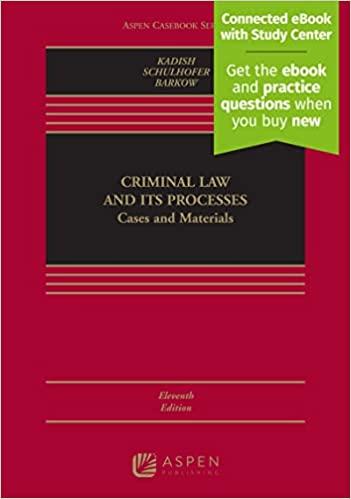Question
Matthew For this week's forum, we were asked the difficult question of defining what the term ethnicity means. To me, ethnicity is a term that
Matthew
For this week's forum, we were asked the difficult question of defining what the term ethnicity means. To me, ethnicity is a term that defines the identity of a person or a group of people. There are many ways to define ethnicity, but this week's readings have made me realize that perhaps I am needing to do more research on what ethnicity truly means. For instance, "the key concept in the study of ethnicity is that of an ethnic group constituting a social group which is orientated in terms of shared language or common historical fate." (Jan-Erik Lane, 2005) Ethnicity used to be related to race mainly, but according to Lane "the concept of race has become almost obsolete in the social sciences due to its value-loaded nature." (Jan-Erik Lane, 2005) Given this information, I would say that ethnicity is not an easy concept to define and there are reasons that scholars are constantly updating the definition.
As far as what Mueller means by the "banality of ethnic conflict," he utilizes the example of the Japanese attack on Pearl Harbor. Mueller explains that "the Japanese" attacked Pearl Harbor. No one of course takes this expression literally to suggest that the entire population of Japan, or even a major portion of it, directly participated in the assault. Rather it is understood to mean that some of Japan's military forces, ordered into action by Japan's government.... launched the attack." (John Mueller, 2000) Rather, I feel that people understand that when they say the Japanese attacked Pearl Harbor, they automatically understand that we are talking about the individuals that were directly involved in the attack. Looking into the additional examples that Mueller uses, Yugoslavia and Rwanda, Mueller notes that "ethnicity is important in "ethnic wars" more as an ordering device than as an impelling force; that the wars did not necessarily derive from the ethnic peculiarities of those regions." (John Mueller, 2000) Essentially, I believe that what Mueller was conveying is that ethnicity holds little validity as the main reason for the wars.
Jason,
Ethnicity is difficult to define as there is no agreed upon set guidelines. In yet the pervasive definitions that circulate are the usually the ones that succeed at stereotyping and dividing society.
Mueller's meaning is that it's not really an entire ethnic group attacking another ethnic group. It is usually small groups of armed thugs attacking areas with a predominant ethnic population. This gets mislabeled as one entire group is eliminating another ethnic group. It's actually a more localized crime by armed criminals that would have committed the same crimes if given the opportunity elsewhere. And he believes they are not that organized to be consider a ethnic cleansing campaign as they are probably attacking everyone in an area and simply taking advantage of committing crimes when no active police or military is in the area.
However I partially disagree with Mueller's point, I believe these small armed groups were biased against a particular ethnic definition they believed to be less worthy than themselves. But I agree its not necessarily one entire "ethnic" group attacking the entire population of another "ethnic" group.
Richard,
Ethnicity is usually derived from a common background or set of traditions of a group of people. The problem with identifying ethnicity is that you cannot simply label ethnicity on a group of people within a specific border. Neighbors today may come from various different backgrounds and have a myriad of cultural differences. One such difference is religion. Catholics and protestants have had clashes with one another over many years because of their vastly different ideas.
Mueller makes the point that these so-called "ethnic wars" are driven more by politicians than a group of people with a shared background. This point is made through his depiction of how the whole Japanese people took the brunt of the blame for the attack on Pearl Harbor. Even though the act of aggression was carried out by members of the Japanese military, the U.S. used this as a rallying cry to seek out retribution for the attack. The Japanese may share a common set of traditions and cultural beliefs, however, not all the Japanese people were responsible for the attack.
I believe Mueller meant that "Banality Ethnic Conflict" is that the creators of war have a lack of originality and will fall back on the only thing they can to create a divide between people, as they typically fall in line if their ethnicity seems to be under attack. The people that use ethnicity as a tool to create conflict only for their own personal gain. The motives of politicians to use ethnicity as a rallying cry, so they can maintain power or gain in some other fashion, seems to work more than many people realize. I very much agree with Mueller in that most of these conflicts come for the self-interested politicians.
Required;
Respond to Mathew, Jason, and Richard
Step by Step Solution
There are 3 Steps involved in it
Step: 1

Get Instant Access to Expert-Tailored Solutions
See step-by-step solutions with expert insights and AI powered tools for academic success
Step: 2

Step: 3

Ace Your Homework with AI
Get the answers you need in no time with our AI-driven, step-by-step assistance
Get Started


